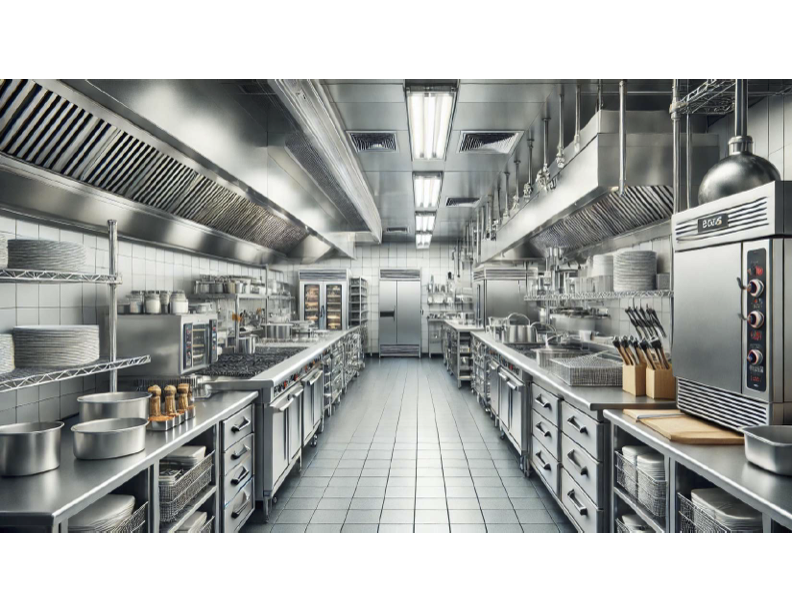Outfitting a commercial kitchen isn’t about buying every shiny gadget on the market—it’s about choosing the right equipment that gets the job done, day in and day out. Whether you're opening a restaurant, launching a food truck, or upgrading a catering operation, your equipment needs to be durable, efficient, and up to code.
Here’s a breakdown of what really matters when it comes to commercial kitchen equipment.
1. Cooking Equipment: The Backbone of Your Kitchen
At the heart of any kitchen is its cooking line. The exact setup depends on your menu, but the core pieces typically include:
-
Ranges and Ovens: Gas or electric, standalone or combo units. A convection oven is great for even cooking.
-
Griddles and Charbroilers: Essential for diners, burger joints, or any place doing high-volume grill work.
-
Deep Fryers: If fried food is part of the game, invest in a reliable fryer with quick recovery time.
-
Microwaves: Not glamorous, but good ones are workhorses for reheating and quick prep.
2. Refrigeration: More Than Just Cold Storage
You’ll need more than a standard fridge. Think about:
-
Reach-in refrigerators and freezers: Your primary cold storage. Go for stainless steel for durability.
-
Prep tables: Refrigerated units that keep ingredients handy while you work.
-
Walk-ins: Critical for high-volume kitchens or those storing in bulk.
-
Under-counter fridges: Ideal for saving space and keeping essentials within reach.
3. Prep Equipment: Speed and Consistency
Prep work eats up time. The right gear helps your staff work faster and with less waste.
-
Food processors and slicers: For bulk prep, they save hours of chopping.
-
Mixers: Essential for bakeries and pizza spots. Planetary mixers handle dough, batter, and sauces.
-
Blenders and immersion blenders: Great for soups, sauces, and smoothies.
4. Dishwashing Equipment: Hygiene Meets Speed
No one loves doing dishes, but commercial kitchens can’t afford downtime here.
-
Commercial dishwashers: Choose based on volume—undercounter, door-type, or conveyor models.
-
Three-compartment sinks: Required by health codes in many places, even if you have a dishwasher.
-
Pre-rinse units: Speeds up cleaning and saves water.
5. Ventilation and Safety
Don’t overlook your hood system and fire suppression. These aren’t optional—they’re code requirements.
-
Hood systems: Remove grease, smoke, and heat. They’re key to kitchen air quality.
-
Fire suppression: Protects your team and investment. Make sure it's up to date and certified.
Final Thoughts: Buy Smart, Not Big
It’s easy to overspend on equipment you don’t actually need. Instead, build around your menu and projected volume. Consider used or refurbished equipment from trusted dealers for big-ticket items. And always think about service and maintenance—having a technician who can fix your line in an emergency is worth its weight in gold.
The goal isn’t to have the most gear—it’s to have the right gear that keeps your kitchen running efficiently, safely, and profitably.

